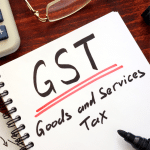Understanding your New Zealand tax residency status is crucial when living in New Zealand. It determines how much tax you need to pay and what financial obligations you have. Knowing it will help you make informed decisions about your employment, business opportunities, and investments.
So, while it may not be the most exciting topic, it’s definitely one worth understanding.
What is Tax Residency?
Tax residency indicates the country where a person is regarded as a taxpayer for income tax purposes. It’s vital for individuals to determine their tax residency status. It affects how they are taxed and what financial obligations they have in that country.
If someone is a tax resident in New Zealand, they pay New Zealand income tax on their worldwide income. Non-residents are only taxed on their New Zealand-sourced income.
Tax residency can also affect other financial matters. It may affect eligibility for government benefits and access to superannuation funds. It may affect being able to open bank accounts or invest in certain types of assets.
It’s crucial for people to understand their tax residency status to comply with the relevant tax laws.
New Zealand Tax Residency Rules
To determine your tax residency in New Zealand, you need to understand the rules set by the Inland Revenue Department. One of the most important rules is the 183-day rule. If you spend more than 183 days in New Zealand in a 12-month period, you are a tax resident.
However, this rule is not the only factor that determines your tax residency status.

Another important rule is the permanent place of abode test. This test considers where your family lives, where you keep your personal belongings, and where you have social ties.
If New Zealand is your permanent place of abode, then you will be a tax resident. This applies even if you spend less than 183 days in the country. It’s important to note that this test is subjective and can vary depending on individual circumstances.
Double Taxation Agreements
Double taxation agreements (DTAs) are binding formal agreements between two countries. They aim to avoid individuals from paying tax twice on the same income or asset. DTAs determine which country has the right to tax certain types of income. It covers employment income, dividends, capital gains, and more.
For example, let’s assume you’re a tax resident in both New Zealand and Australia. Let’s further assume you receive income from both countries. Without a DTA you would be subject to tax on the same income in both countries.
However, with a DTA, you can apply for relief from double taxation and only pay tax in one country. This can result in significant tax savings and help avoid the complexity of dealing with multiple tax systems.

Tax Residency vs. Citizenship
Tax residency and citizenship are two distinct concepts. They can both significantly impact an individual’s taxation and financial matters. Citizenship is based on legal status. Tax residency is determined by an individual’s physical presence and ties to a particular country.
For example, a person may be a citizen of one country. But they may also be tax resident in another country where they spend most of their time. This can result in them being taxed in both countries unless a DTA exists between the two countries.
Tax Residency and Working in New Zealand
As a tax resident in New Zealand, you will be subject to different tax rates and obligations compared to non-residents.
For example, tax residents are generally taxed on their worldwide income. Non-residents pay tax only on their New Zealand income. This can have a significant impact on your take-home pay and overall financial situation.
In addition, tax residency status can affect your employment and business opportunities in New Zealand. Some employers may prefer hiring tax residents due to lower tax rates and greater stability of their residency status.
Similarly, some businesses may prefer to hire tax residents due to the potential tax benefits and reduced compliance risks.
Becoming a Tax Resident in New Zealand
Becoming a tax resident in New Zealand involves meeting certain requirements and following specific steps. Someone is a tax resident if they’ve been in New Zealand for more than 183 days during a 12-month period. Or if they have a permanent place of abode in New Zealand.
However, these rules can be complex and depend on individual circumstances.
To apply for tax residency status, individuals must complete an IRD number application form. They must provide evidence of their identity and residency status. This may include a passport, visa, or utility bill.
Once approved, individuals will receive an IRD number. They must then file tax returns and pay taxes on their income earned in New Zealand.

Maintaining Tax Residency in New Zealand
To maintain tax residency in New Zealand, it’s important to meet certain obligations. This includes filing tax returns on time and paying any taxes owed. Failure to do so can result in penalties and even the loss of tax residency status.
Additionally, you must meet the physical presence test or have a permanent place of abode in New Zealand. If you leave New Zealand for extended periods, you may need to take steps to maintain your tax residency status.
Tax Residency and Investment in New Zealand
Investing in New Zealand can be a smart financial decision. But it’s important to understand how your tax residency status can impact your investments.
As a tax resident in New Zealand, you’ll be subject to different tax rates and rules than non-residents. This means that your investment decisions and strategies may need to be adjusted based on your tax residency status.
For example, if you’re a tax resident in New Zealand, you’ll be subject to tax on your worldwide income. This includes any income earned from investments outside of New Zealand.
On the other hand, if you’re a non-resident, you’ll only be taxed on income earned within New Zealand. This can have significant implications for your investment portfolio and tax planning strategies.
Common Tax Residency Mistakes
A common mistake individuals make when determining their New Zealand tax residency is assuming the 183-day rule is the only factor. While this rule is an important factor, it is not the only one. Other factors such as the permanent place of abode test must also be considered.
Failing to do so can result in incorrect tax residency status and potential legal and financial consequences.
Another mistake is assuming that tax residency status only matters for income earned in New Zealand. In reality, tax residency status can affect taxation on income earned both domestically and internationally.
New Zealand tax residents who fail to report income earned overseas may face penalties and legal consequences. It’s important to understand the full scope of tax residency status and how it can impact all sources of income.

Getting Professional Advice
When determining your tax residency status in New Zealand, seeking professional advice can be incredibly beneficial. A professional will help you navigate the complex rules and regulations. They will also provide guidance on how to optimise your tax situation.
Whether you’re an individual or a business, consulting with a tax expert can help you save money. They’ll help you avoid legal issues down the line.
There are several types of professionals who can assist with tax residency matters, including accountants, tax lawyers, and financial advisors. They have specialised knowledge and experience in dealing with tax residency issues. They’ll provide tailored advice based on your specific circumstances.
It’s important to seek out professionals who are familiar with New Zealand tax laws and international agreements.
Conclusion
Understanding your New Zealand tax residency status is crucial for managing your finances and avoiding legal issues. You’ll pay the correct amount of tax and take advantage of applicable tax benefits.
If you are unsure about your New Zealand tax residency status seek professional advice. Consult with a tax expert who can guide you through the process and help you make informed decisions.



